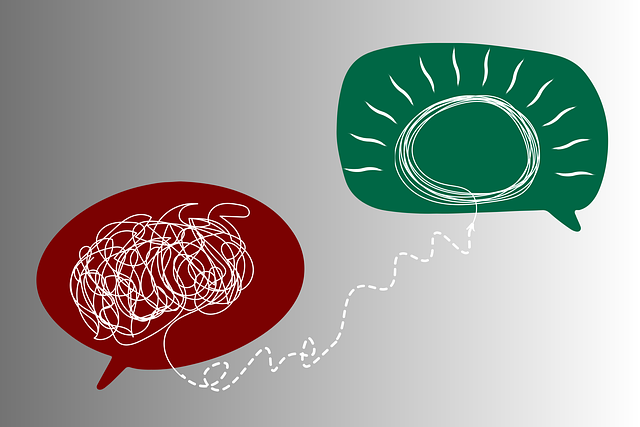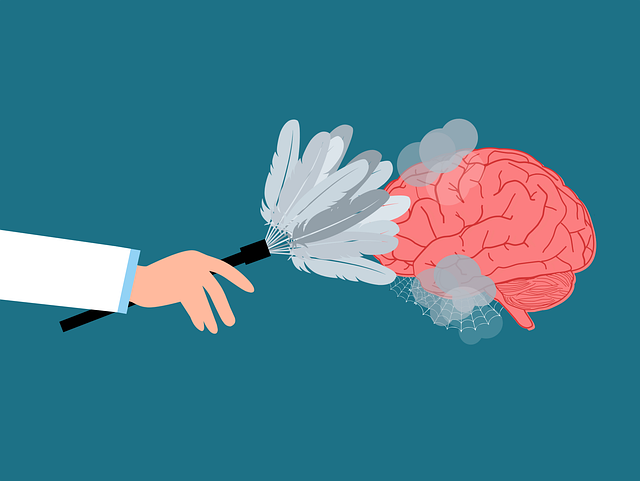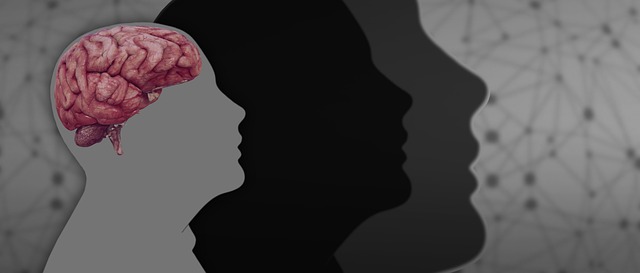Mental illness diagnoses are crucial for effective treatment, and Lafayette Somatic Experiencing Therapy (LSE) provides a revolutionary approach by focusing on the mind-body connection. LSE helps individuals process emotional issues through trauma resolution and deep relaxation, leading to improved mental wellness. This therapy, combined with self-care routine development, offers personalized coping mechanisms for enhanced resilience. Integrating LSE with Mental Health Policy Analysis, Crisis Intervention Guidance, and advocacy groups creates a comprehensive network of support tailored to individual needs, ensuring ongoing recovery and symptom management.
Mental illness diagnoses can be complex, often leading to feelings of confusion and uncertainty. This article guides you through the process, offering insights into understanding mental health conditions and navigating treatment options effectively. We explore the unique approach of Lafayette Somatic Experiencing Therapy (LSE) as a transformative modality. Additionally, we provide a comprehensive overview of post-treatment integration strategies to promote long-term well-being. By delving into these sections, readers will gain valuable knowledge on managing mental health journeys with resilience and hope.
- Understanding Mental Illness Diagnoses: Unraveling the Process
- The Role of Lafayette Somatic Experiencing Therapy (LSE) in Treatment
- Navigating Treatment Options: A Comprehensive Guide
- Supporting Post-Treatment Integration and Long-Term Well-being
Understanding Mental Illness Diagnoses: Unraveling the Process

Understanding mental illness diagnoses is a crucial step in navigating treatment effectively. The process often begins with identifying specific symptoms and their impact on daily life. Professionals, like those at Lafayette Somatic Experiencing Therapy, employ comprehensive assessments to gain insights into an individual’s psychological well-being. This involves discussions about mood, thoughts, behaviors, and any challenges faced, allowing for a nuanced understanding of the person’s mental health landscape.
Accurate diagnoses are essential as they provide a framework for tailored treatment plans. By recognizing conditions such as anxiety, depression, or trauma, therapists can guide patients towards appropriate interventions. Moreover, integrating self-care routine development for better mental health into the treatment process empowers individuals to actively contribute to their recovery journey, alongside professional support from Lafayette Somatic Experiencing Therapy and through engaging in mental wellness podcast series production, which offers valuable insights and community.
The Role of Lafayette Somatic Experiencing Therapy (LSE) in Treatment

Lafayette Somatic Experiencing Therapy (LSE) offers a unique and transformative approach to mental health treatment, focusing on the profound connection between the mind and body. This therapeutic method recognizes that emotional and psychological issues often have their roots in physical sensations and past traumatic experiences. By engaging in LSE, individuals can learn to interpret and process these bodily signals, leading to significant improvements in their overall mental wellness.
The therapy facilitates a deeper understanding of self-care practices by helping clients identify and release held tensions and emotions. Through specific communication strategies tailored to each person’s needs, LSE enables them to develop effective coping mechanisms. This personalized approach not only supports the healing process but also empowers individuals to take charge of their mental health journey, fostering improved resilience and enhanced quality of life.
Navigating Treatment Options: A Comprehensive Guide

Navigating treatment options for mental illness can be a daunting task, but with the right resources, individuals can find their path to recovery. One effective approach gaining traction is Lafayette Somatic Experiencing Therapy (LSE), which focuses on resolving trauma and promoting deep relaxation. LSE combines elements of mindfulness meditation, helping patients cultivate present-moment awareness and reduce anxiety. This holistic therapy is especially beneficial for those experiencing complex PTSD or chronic stress.
Beyond LSE, Mental Health Policy Analysis and Advocacy plays a crucial role in expanding access to quality care. Crisis Intervention Guidance also offers vital support during acute episodes, providing strategies to manage symptoms and connect individuals with appropriate treatment resources. Integrating these diverse approaches can create a comprehensive network of support, ensuring individuals receive the tailored care they need to thrive.
Supporting Post-Treatment Integration and Long-Term Well-being

After receiving a mental illness diagnosis and initiating treatment, the journey towards recovery is far from over. Effective navigation assistance extends beyond initial therapy sessions, focusing on supporting individuals in seamlessly integrating their newfound well-being into daily life. This involves tailored strategies to manage ongoing symptoms, prevent relapse, and promote resilience. For instance, Lafayette Somatic Experiencing Therapy offers specialized techniques to process traumatic memories, helping clients regain a sense of safety and stability in their lives.
Long-term mental health requires a holistic approach that addresses not just the mind but also the body and spirit. Integration assistance may include connecting individuals with relevant support services like Trauma Support Services or Mental Health Policy Analysis and Advocacy groups, providing ongoing guidance and resources for navigating systemic challenges. Additionally, promoting stress management skills through organization workshops can empower individuals to take an active role in maintaining their mental health, fostering a sense of control and self-care that is vital for sustained well-being.
Mental illness diagnosis and treatment can be a complex journey, but with the right navigation assistance, individuals can achieve lasting well-being. Throughout this article, we’ve explored various aspects of this process, from understanding diagnoses to exploring innovative therapies like Lafayette Somatic Experiencing Therapy (LSE). By providing comprehensive guidance on treatment options and emphasizing post-treatment integration, we aim to empower folks in their pursuit of mental health recovery. LSE, with its unique approach, offers a promising path for those seeking transformative healing. Remember that navigating mental health is personal, and resources like these serve as valuable tools along the way.












